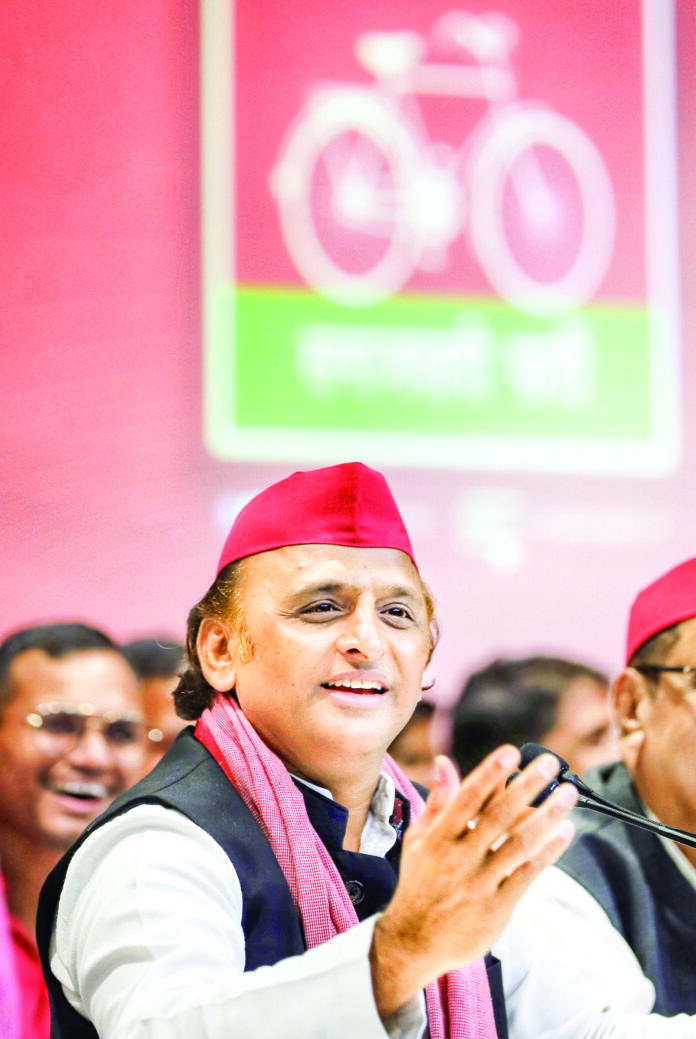
Samajwadi Party begins early groundwork for 2027 UP polls with renewed focus on Dalit outreach.
New Delhi: The Samajwadi Party, under the leadership of former Uttar Pradesh Chief Minister Akhilesh Yadav, has begun preparations for the 2027 UP Assembly elections. As part of these early efforts, Yadav has initiated a series of internal meetings within the party and held multiple discussions with various district units.
According to a party source who spoke to The Sunday Guardian, the SP intends to continue with its PDA (Pichhda, Dalit, and Alpsankhyak—Backward Classes, Dalits, and Minorities) formula, which yielded positive results in the 2024 Lok Sabha elections. In line with this strategy, the party plans to field more Dalit candidates than the number of reserved seats in the state.
A senior party leader stated that the SP aims to field Dalit candidates in approximately 100 out of the 403 Assembly seats. While Uttar Pradesh has around 83 reserved constituencies, the party’s goal is to exceed this number to send a strong message—that SP is the only political force genuinely committed to the Dalit community and to ensuring meaningful representation in governance.
The source revealed that earlier this week, SP held a closed-door meeting with senior leaders and strategists to enhance its Dalit outreach ahead of the Assembly elections. During the meeting, the party identified around 200 strong Dalit leaders from across the state based on their grassroots influence and leadership potential. From this group, approximately 100 will be given tickets to contest the elections. This move aims to boost Dalit representation and reinforce the party’s PDA strategy.
I.P. Singh, the national spokesperson for the Samajwadi Party, confirmed to The Sunday Guardian that the party has already kicked off preparations for the upcoming 2027 polls and that several rounds of meetings have been conducted. He emphasised that the SP remains committed to its tried-and-tested PDA formula, which will form the foundation of its campaign for the state Assembly elections. Singh also pointed to the 2024 Lok Sabha results, where the party claimed to be in a strong position in over 240 seats—far above the majority mark of 203—and expressed confidence that similar success could be replicated in 2027. He added that the party’s current focus is on improving performance in constituencies where it previously fell short, aiming for a stronger showing across the state.
Aditya Rathi, a political analyst, told the publication that SP’s strategy of targeting Dalit voters is a clever and calculated move. He noted that with Yadavs and Muslims already largely backing the party, gaining the support of Dalits could significantly enhance its chances in the 2027 elections. Rathi added that fielding over 100 Dalit candidates would send a powerful message to the Dalit electorate—that the party values their presence and seeks to empower them. If this strategy succeeds, it could disrupt the BJP’s prospects of retaining power in UP. However, he also pointed out that with over a year and a half to go before the elections, the BJP is expected to devise a robust counter-strategy to address the SP’s PDA formula, particularly its focus on Dalit representation.







